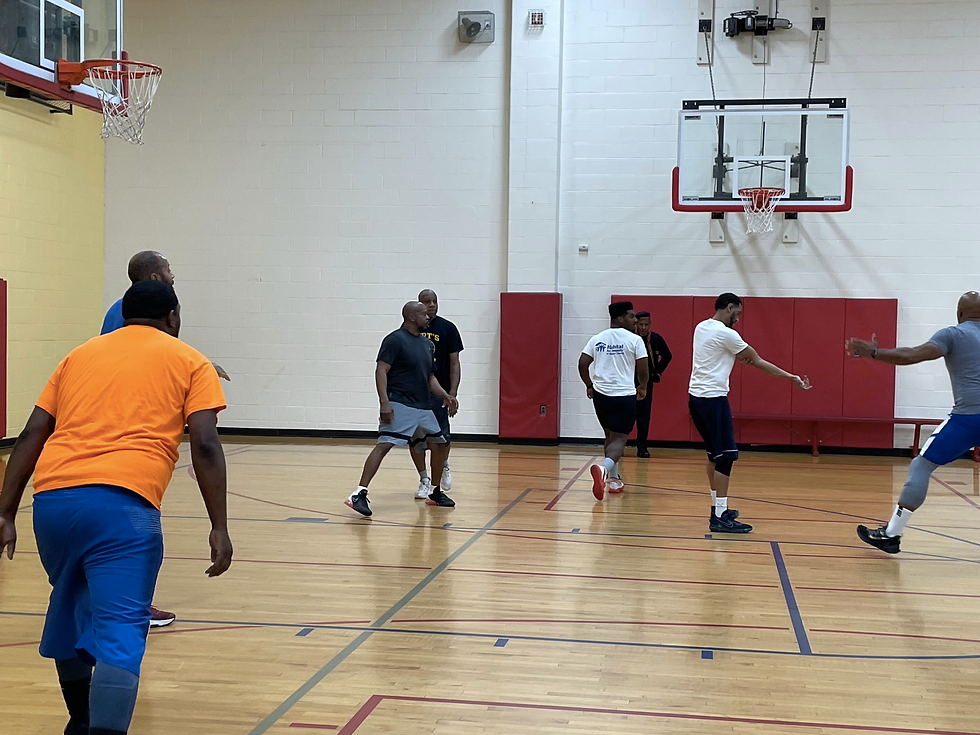Traveling & Thinking out Loud with the People's Pastor (Sat-Sun) April 1-2, 2023
- sarahcdc
- Apr 27, 2023
- 4 min read
Saturday, April 1, 2023: I attended the National Action Network (NAN) Rally early SatuRday morning.
Sunday, April 2, 2023
Another full day, this being Palm Sunday. Our prayer with the basketball players as usual has been a couple of weeks since I had been present. I want to thank Minister Gregory for filling in during my absence. After the prayer with the basketball players we had our 845am Men’s prayer. Then we had our 11:30am Sunday worship, the first and third Sunday’s we worship in person. It was good to be in our church building we lease on Palm Sunday.
My message was the three lessons of Palm Sunday. From the book of Matthew 21:1-. The event is the week before Jesus was crucified, He came into the city of Jerusalem. The people, it seems, spontaneously began cheering and taking off their coats spreading it out before Him and waving branches in celebration. He goes into the temple and finds the money-changers and other business happening. He became furious and overturned the tables of the money-changers and began to chase them out of the Temple. And then the sick and lain came to Him and He healed them.
Three lessons:
1. As Jesus had instructed His disciples where to go and there would be a donkey awaiting them. And they were to untie and bring the donkey to him. If someone should inquire what they are doing. They are to inform the person what the donkey was for. Here we see Jesus moved pertinently. He had contacts in various places. So there is a secrecy about some of his movements. Rightly so because they were always spies or people trying to trap him into doing something or saying something that would be against the law.
2. The aculation, the celebration of the people. I always wondered why Jesus went along with this apparent charade. Because by the weekend some of the same people were crying and crucifying him. They went from celebration to crucifixion in a week. Was he teaching us how fickle the crowd is, not to depend upon the masses for they may change overnight. But nevertheless to love the masses and to be among the people and to serve the people and some will hear the message and become committed to the gospel.
3. Is one that I have drawn on across the years. When Jesus went into the Holy place as the Scripture has said, he disrupted the legitimate legal business operation. These were not crooks or thieves as we define criminality. These were highly respected businessmen, yet Jesus saw it differently and disrupted the businesses, turning over tables and seemingly exercising a degree of violence as he pushed. Then after being disrupted in the same place, same day, the sick came to him and healed them there. The powerful lesson is that Jesus did not say I am an activist and I believe in radical action, no he said I believe in praying and fasting for the people. Let the others do the confrontation and civil disobedience. What Jesus said, by his actions, there is no dichotomy when addressing human need. Both those that were exploited having unfair business practices although legal and those that were physically in need of healing. Both needed to be made whole. Both needed help. The money changers with the religious help set up a system that required secular money, just plain money to be changed in the temple which means that if you had $100, it had to be changed into Holy money and you might get back $75 for your $100. Now you have to buy something to bring to worship. The Bible teaches you should bring something when you come to worship. You remember the widow woman who only had a penny, Jesus didn’t say put that penny back in your pocket, but He held it up as a teaching moment, saying whatever you give or the amount that you give has its value depending upon how much you have. This is why paying tithes and giving an offering is fair.
So back in the Temple the dove might cost $2 in the marketplace, but you needed to have a Holy dove that would cost you double the amount. Now keep in mind people would save all year long, deny themselves, putting their pennies away to get to the temple to worship God. So when they got to the Temple, they were being exploited. And Jesus became angry. You will notice that he didn’t get angry because of what was happening to Him, but what was happening to the people.
A good question for ourselves. What makes us angry? Do we get angry when people are exploited or dehumanized? Do we get angry when people are denied opportunities that are freely given to others?
So these are the lessons of Palm Sunday. In the evening, my wife and I enjoyed a Sunday dinner at one of our favorite restaurants.







Comments